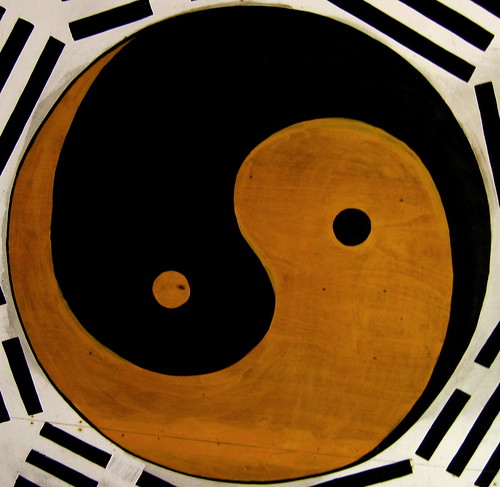
When we're ill, what do we look for in a doctor? Do we look for a doctor who can see the symptom, maybe a cough or a sore throat, and just treat the symptom without ascertaining the cause of the illness? Sure this doctor provides temporary relief, but your illness (or a similar one) is bound to recur if you don't root out, and remove, the cause. Therefore, a better doctor, having observed your symptoms, also determines the cause of your illness. It will probably take longer to remove the cause than it would have to just treat the symptoms, so therefore it is ok to treat the symptoms, providing immediate relief, as long as one still undertakes the removal of the cause. A better doctor still, having relieved the symptoms and treated the cause, also instructs you in how to prevent the cause from recurring.
In the same way, the Buddha is a doctor of our lives. He first taught the most fundamental of his teachings, the Four Noble Truths. The first noble truth is that suffering exists. This truth is like identifying the symptoms. We look at our experiences and ask, "Is this suffering?" Through wisdom born of our practice, we learn to distinguish suffering from non-suffering. Many things might not seem like suffering, yet in the long-term, are. Just so, many things might seem like suffering now but, in the long-term, are not. With this truth, we identify suffering as it exists.
The second truth is that suffering has a cause. This is like the doctor identifying the cause of the illness. With concentrated insight, developed through our practice, we learn to identify the cause of our suffering. With limited insight, we are capable of finding superficial causes to our suffering. With increasing insight, our findings deepen, and we begin to root out the poisons truly causing our suffering.
The third truth is that we can bring an end to suffering by eliminating its causes. This is like the doctor who understands that there is more to the symptom than meets the eye—it has a cause, and if we remove that cause, the symptom will abate of its own accord.
The fourth truth is the path that leads to the end of suffering (the removal of the cause of suffering). This is like the doctor who relieves your symptoms, treats the cause, and teaches you how to prevent the cause from recurring—the perfect doctor.
With Right View, we recognize the views that cause suffering and learn how to eliminate them, while promoting the views that bring true joy and compassion. With Right Intention, we vow to devote all that we have to eliminating the causes of suffering and the practice of loving-kindness. With Right Conduct, we act in ways that do not (or minimally) harm others and that foster great virtue on our part. With Right Speech, we refrain from slandering others, lying, and inciting hostility or aggression. With Right Livelihood, we engage our lives with a job that is non-harming in nature. With Right Effort, we continuously direct our energy toward the abandonment of unskillful states and the generation of skillful states. With Right Concentration, we engage the ability to focus our minds and penetrate, with deep insight, into the causes of things, into our true nature. With Right Mindfulness, we place and maintain our attention, strengthened with concentration, on our body as it is, our feelings as they are, our thoughts as they are, and our consciousness as it is.
A good doctor is important; the Buddha much more so! Our doctor can heal us of our physical ills (and sometimes our psychological ills). The Buddha points us toward the path to the removal of all suffering, to peaceful loving-kindness, with total compassion and love for all beings, sentient and insentient.























